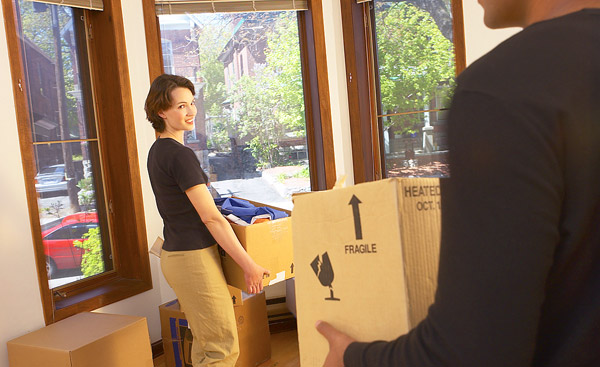 Depending on the size and scope of the damage, it may be necessary for you to make new living arrangements after a disaster strikes your home.
Depending on the size and scope of the damage, it may be necessary for you to make new living arrangements after a disaster strikes your home.
There are several reasons why you may not be able to occupy your home after a disaster, and during the restoration process. The most common reason is that it is unsafe to be in the home due to poor air quality from smoke or mold growth. Even after a fire has long been extinguished, the air is still contaminated with corrosive soot particles and chemicals released from burned materials, such as plastics, that can severely damage the lungs and irritate mucous membranes in the nose. Water and moisture left over from extinguishing the fire can rapidly cause mold growth. The mold spores can easily become airborne and spread from room to room. Breathing in mold spores can cause many different respiratory health issues, especially to children or people with asthma or allergies.
Certified restoration and mitigation professionals, wearing Personal Protection Equipment (PPE), and following stringent safety guidelines, are the only persons qualified to occupy and work within these contaminated spaces.
Below are some things you should take into consideration if you are forced to leave your home after a disaster.
Find New Living Arrangements:
- Find new living arrangements close to work, school, and home. This will help minimize the disruption to your everyday routine and provide more convenient access to your home during the restoration project.
- Choose your living accommodations based on what you will be comfortable with during the length of time it takes to complete the home repairs. When choosing a location, your insurance company should take your previous living requirements into consideration, so you and your family are as comfortable as possible.
- Extended stay hotel suites or month-by-month apartment rentals are recommended, if your insurance policy covers the cost.
- Living with friends or relatives is a good choice if your stay does not interrupt their lives for too long and puts a strain on your relationship.
- Take with you as many everyday possessions as you can to make you and your family feel more at home, such as: children’s toys; books; games; electronic devices; cooking utensils; dinnerware; blankets; etc.
Secure Your Property and Belongings:
- Remove all valuable possessions and personal belongings from your home. Do not leave any documents behind that contain financial, banking, or medical information.
- Make sure all electrical appliances remaining in the home are unplugged and protected from damage during the restoration process.
- Have your mail forwarded to your new living location, or have the Post Office hold it for you to pick up at your convenience.
- Make sure your damaged home is properly locked, secured, or boarded up to prevent intrusion by people or natural elements. It is your legal responsibility to do this. Your restoration contractor will perform this service for you.
- Contact your local police department to let them know your home will be vacant, and ask them to periodically check it to prevent theft or vandalism.
Manage Your Expenses and Documentation:
- Open up a separate checking account just to handle the money dedicated to the restoration repairs. This will help you accurately track your expenses, and keeps them separate from your everyday household funds.
- Save the receipts from any living expenses you incur during your stay away from home. Your insurance company may reimburse you for food, lodging, clothing, etc. In some cases, you may be able to claim expenses on your income taxes that were not covered by insurance.
- Since you will be away from your property during the restoration or reconstruction process, be sure to exchange phone numbers with your restoration Project Manager. This will ensure a consistent line of communication during the project.

